Somalia: UN officials meet women taking charge of their lives against climate change
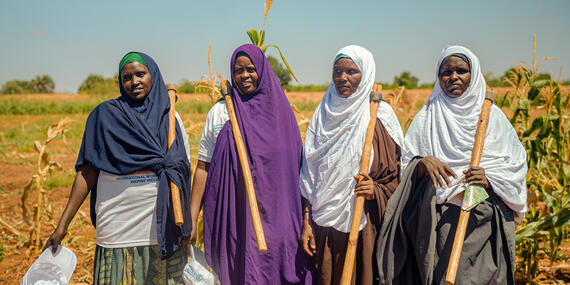
Thanks to new job skills and grants supported by OCHA and the UN Food and Agriculture Organization (FAO), women in Doolow, in Somalia’s southern Gedo region, one of the most affected by extreme weather events in recent years, are finally turning a page in their lives.
Two top UN officials from OCHA and FAO met some of them in their mission to Somalia last week.
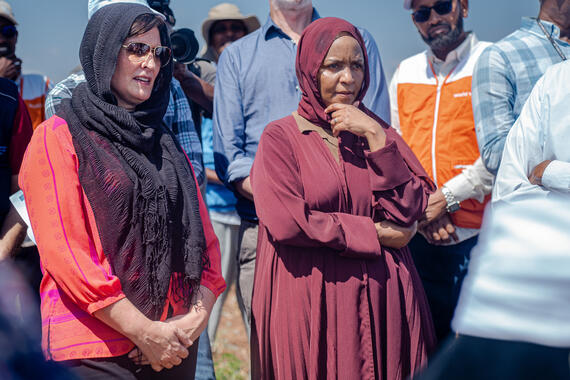
Ms. Beth Bechdol, Deputy Director-General of FAO and Ms. Joyce Msuya, Assistant Secretary-General for Humanitarian Affairs and Deputy Emergency Relief Coordinator, were in Somalia to highlight the needs of nearly seven million people – two out of every five people in the country – in need of life-saving assistance this year.
At least 1.7 million children likely to suffer from acute malnutrition as people continue to grapple with the impact of the longest droughts they had ever lived through, followed by record-breaking floods.
Following are the stories of some of the women, who are now able to rebuild their lives.
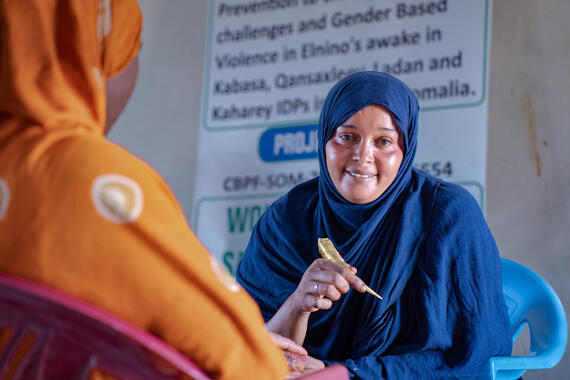
Aisha Awil
Aisha Sayid Awil is only days away from completing a three-month training programme for internally displaced persons (IDPs) in Kaharey camp, where she learnt the art of making henna tattoos on hands and feet for wedding ceremonies.
The training is provided by a local non-governmental organization, Socio-Economic Development and Human Rights Organization (SEDHURO), with support from the OCHA-managed Somalia Humanitarian Fund (SHF).
The training focusing on protection and responding to gender-based violence, aims to support vulnerable women and children.
A single mother, Aisha plans to use her newfound skills to earn money to support and educate her two children.
“I felt I was very lucky to be in this area, where aid agencies help IDPs a lot. If we need food items the agencies donate them to us," Aisha said. "We were also given opportunities to study and look for
work. I am very happy with the support I receive.”
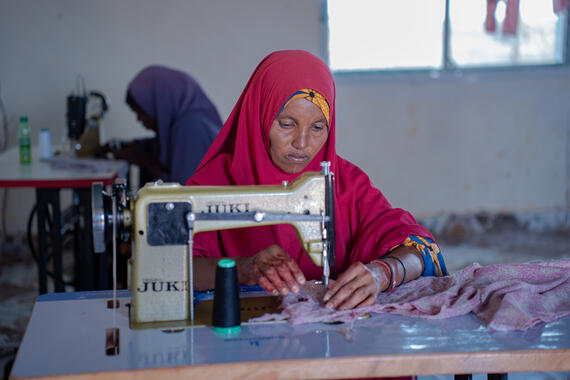
Tawan Abdulahi
Tawan Hassan Abdulahi aims to use her new tailoring skills provided by SEDHURO to educate her seven children.
Speaking about her life in Kaharey camp, Tawan said, she hopes the earnings from her new skills will help her family bounce back from the impact of droughts and floods.
"OCHA taught us valuable skills, including tailoring and salon work, which will help us provide for our children,” she said. “…We need sustainable income sources to support our families."
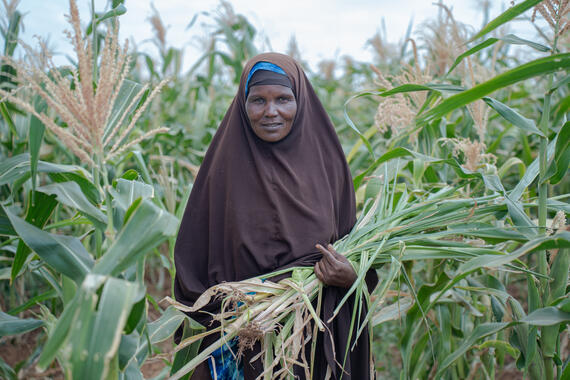
Ubah Wayrah
Last year's severe flooding submerged Ubah Abdi Wayrah's home, destroyed her crops, and left her eight children on the brink of starvation. Now her family is on the road to recovery — thanks to cash grants, land and agricultural training provided by FAO.
Ubah, who now lives with her family in Qansahley IDP camp, said, “If it weren't for the seeds and fuel, they [FAO] provided, I would have starved here.”
Ubah has used a monthly US$80 grant from FAO to buy new livestock, agricultural input and afford private school for her children. Meanwhile, she has learned to work the land, and transitioned from pastoralism.
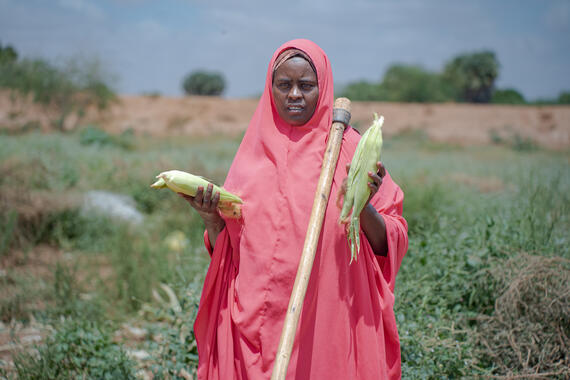
Faduma Mohamed
Severe flooding forced Faduma Shariff Mohamed and her husband to abandon their house on the banks of the Juba and seek shelter with their seven children in Qansahley camp. Faduma is using cash grants from the FAO to grow crops, buy school uniforms for her children, and invest in her shop.
Faduma said, "Our aim is to return them home after two months of displacement and resume our livelihoods, God willing."
She is confident that similar support for other women farmers cultivating the banks of the Juba River will yield dividends.
